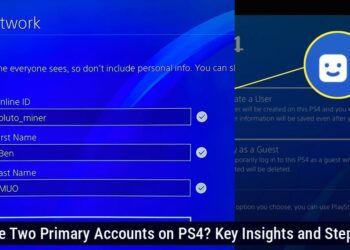Is Downloading ROMs Really Illegal? Let’s Clear the Air (and Maybe the Legal Fog)
Are you eager to revisit those golden gaming days? ROMs are hiding in the internet’s shadows. But is downloading them illegal? The answer is yes. Generally, downloading ROMs without the copyright holder’s permission is a legal no-no. It’s like borrowing a neighbor’s car without asking. Not cool.
Copyright infringement rules the game of unauthorized ROM downloads. Downloading and sharing these files without permission steps on the toes of the copyright owner. They control how their game is distributed and enjoyed. These pirate game copies, called “ROMs,” are digital copies of originals. Grabbing them is sneaking into a theater – getting away with it doesn’t make it right.
ROMs and Emulators: Decoding the Tech Jargon (No Geek Speak, Promise!)
Let’s break down terms! ROM means Read-Only Memory. In gaming, it’s a file holding everything a video game needs. Think of it as a digital cartridge or disc with all the necessary data. To play these ROMs, you need an emulator, like a chameleon that mimics old console hardware.
Emulators are legal software designed to imitate hardware. They allow modern devices, like your iPhone, to run classic games. You can download ROMs to your iPhone and play retro games. It’s like having a time machine in your pocket. Emulating games you own is generally legal, similar to making a personal backup of a purchased CD. It’s gray but accepted for personal use.
The tightrope walk starts with obtaining and sharing ROMs. Downloading ROMs you don’t own risks copyright laws. Sharing them makes it even riskier. It’s like owning a record player and selling copies of your neighbor’s vinyl – much less legal.
Navigating the Murky Waters: Exceptions and Gray Areas (Warning: May Contain Legal Loopholes… Maybe)
Now for the fun part—exceptions and gray areas! Some people argue making a ROM of a game you own is a digital backup. They shout “fair use,” claiming it’s their right to protect their investment. But Nintendo disagrees. They haven’t embraced this backup argument, and it’s untested in court. The legal waters remain murky.
Next is preservation. Some say ROMs are crucial for keeping older games alive, like digital archaeologists. They save gaming history from fading away. However, legality doesn’t favor noble intentions. Downloading ROMs without permission is still illegal. Saying it’s okay to steal an artifact for a museum doesn’t make it theft any less real.
What about games no longer on sale? Is pirating them less criminal? The answer is surprisingly yes and no. Often, pirating old games is a civil offense if you’re not profiting from sales. It’s a slap on the wrist, not jail time, unless you’re a huge ROM-peddling empire. But civil offenses lead to fines. Don’t assume “out of print” means free reign. It’s like an abandoned bike; it still belongs to someone.
The Straight and Narrow: Legal Ways to Play Retro Games (No Pirate Ships Required!)
Enough legal tightrope walking. Let’s discuss legitimate retro gaming options. There are several ways to enjoy retro games without risking legal trouble.
First, consider official re-releases! Many companies re-release classic games digitally or in collections. It’s like a band remastering their best album—great tunes, legally obtained, often freshened up. Check stores like Steam and GOG for retro gems.
Then, there are subscription services. Think Netflix but for classic games. Services like Nintendo Switch Online and PlayStation Plus offer massive retro game libraries for a monthly fee. It’s an all-you-can-eat nostalgia buffet, served legally and conveniently.
Finally, buy physical copies! If you love the authentic retro feel, hunt down physical cartridges or discs. It’s like shopping in a record store for vinyl. Tangible and collectible, owning the original is satisfying.
Custom ROMs: The Good, the Bad, and the Legally Ambiguous (Proceed with Caution!)
Now, let’s discuss custom ROMs. Custom ROMs are modified operating systems, often for Android. In gaming, think modified game ROMs or custom firmware for consoles. Their legality is tricky. Making custom ROMs from scratch is generally clear, like building your own house legally.
The landscape shifts if custom ROMs borrow licensed code. If a custom ROM includes someone else’s protected code, legality crumbles. Consider it building with stolen bricks—legal ramifications loom large. Tinkering with custom ROMs might be tempting; just watch the source. If they lack permission, you enter a legal minefield.
Consequences: What Happens if You Get Caught? (Spoiler Alert: It’s Not
a Game Over in a Good Way)
Let’s discuss illegal downloading. There are consequences, and they are not just warnings. In many places, pirating games can lead to jail time. Yes, prison. Especially if you distribute large amounts or if you are a repeat offender. The digital police treat copyright infringement seriously, especially when you profit.
Financial penalties are real. If caught, fines can be massive. Civil penalties may range from $750 to $150,000 for each work shared illegally. Each song, movie, or game has its own cost. Imagine downloading many ROMs and facing penalties for each game. That’s painful! Criminal penalties in the U.S. can mean five years in prison and $250,000 in fines. Those “free” games come with hidden costs.
Who pursues individual downloaders? Law enforcement, like the FBI, focuses on big offenders. They target those who profit from piracy. They want to shut down major piracy operations. However, you’re not free of risks. Copyright holders can inform ISPs about pirate users. ISPs may not report every case, but they can send warnings, slow down speeds, or cut off service due to complaints.
A sneaky non-legal consequence is malware. Many pirated games include unwanted software. Downloading ROMs from suspicious sites opens a risk. Malware can harm your device, steal data, or disrupt your life. Even if legal action misses you, malware can still strike. It’s a risky gamble.
Law and Order: Specific Cases and Acts You Should Know (Legal Eagle Edition!)
Let’s look at real-world examples. Consider Gary Bowser. He is not the villain from the Mario games. He is a 54-year-old programmer involved in a ROM piracy group. In April 2023, he was released after spending 14 months in a 40-month sentence. His crime caused significant damage to Nintendo. This shows that ROM piracy is a severe crime.
Now, let’s discuss UK law. The Copyright, Designs and Patents Act 1988 was amended to increase penalties. The maximum sentence for online copyright infringement rose to ten years. Ten years! That’s a long time to reflect on illegal downloads. Governments take online copyright seriously.
We must also mention U.S. Copyright Law. It carries heavy penalties. Violators face five years in prison and $250,000 in fines for infringements. The legal structure is serious and active. The internet is not lawless when it comes to copyright. Authorities enforce the rules.
What Counts as Illegal Downloading? Let’s Break it Down (No Legal Degree Required!)
Downloading copyrighted material without permission is illegal. This includes music, movies, games, and shows. If you take content you haven’t paid for, you’re breaking the law. It’s like shoplifting but in the digital world.
It’s not only downloading that matters. Sharing is illegal too. Even if you don’t know you are sharing, offering copyrighted files can land you in trouble. Peer-to-peer networks often involve both actions. You could unwittingly share content while trying to download. Ignorance won’t save you in court.
Tech Corner: ROMs on Your iPhone – Yes, You Can! (But Should You?)
You can download ROMs to your iPhone and play them with emulators. The technology exists, and apps are available. Retro gaming is possible. However, the ability doesn’t mean you should. You should stick to ROMs for games you own legally. Risks increase with illegal downloads.
So how do you get ROMs onto your iPhone? Use the Files app for management. Download ROMs from various sources directly to this app. Email is another way; send ROMs attached to your email and download them to your phone. Cloud services like Google Drive or Dropbox also help. Upload files and access them through the Files app.
AirDrop can transfer files wirelessly from your computer. Choose your method wisely but stick to legal sources for ROMs.
Finally, let’s discuss VPNs. If you download torrents, even legally, a VPN is a wise choice. A VPN encrypts Internet data and masks your IP address. This adds privacy and security. While it doesn’t make illegal activity legal, it conceals your tracking. Using a VPN for illegal purposes remains against the law.
Staying on the Right Side of the Law: How to Avoid Trouble (Your Guide to Digital Virtue!)
The best way to avoid legal issues? Avoid illegal downloads completely. Explore legal methods: official re-releases, subscriptions, or buy copies. Support developers who create games by paying legally. It shows that you value their hard work and creations.
If nostalgia calls, revive old consoles and games or check retro stores for physical copies. There’s charm in original hardware experiences. If you must play on emulators, look for ways to acquire ROMs legally, like backing up your own games. It might be more effort, but it’s safer.
Ultimately, staying legal is not just right; it supports the gaming industry. It helps ensure developers create amazing games for everyone to enjoy guilt-free.











